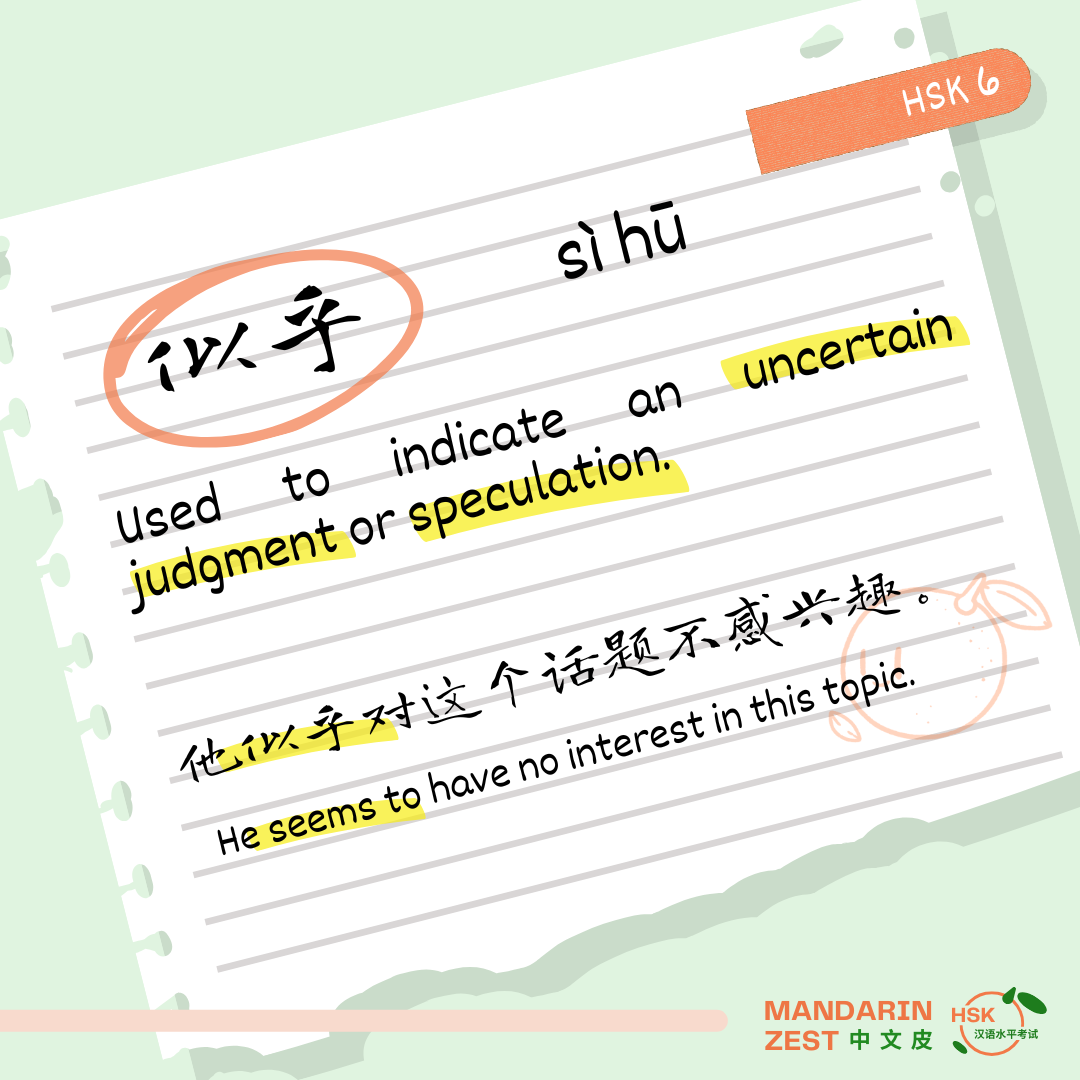The adverb 似乎 (sì hū) is used to indicate an uncertain judgment or speculation, similar in meaning to 好像. However, 似乎 is more formal and often appears in written language.
Structure:
Subj. + 似乎 + (predicate)
Sample Sentences
他似乎对这个话题不感兴趣。He seems to have no interest in this topic.
她今天似乎特别忙,都没时间跟我们聊天。She seems especially busy today and doesn’t even have time to chat with us.
这部电影似乎很受欢迎,电影院里人很多。This movie seems very popular; the theater is packed.
In a Text
在一个寂静的午后,小李坐在咖啡店的角落里,看着窗外发呆。窗外的天空阴沉沉的,似乎随时都会下雨。店里播放着轻柔的音乐,空气中弥漫着咖啡的香气,但他却没有心思享受这一刻。他的手机屏幕亮了一下,是一条未读消息。他看了一眼,似乎是朋友发来的,但他没有打开。
他最近总是心神不宁,似乎有很多事情困扰着他。他想起昨天的面试,考官的表情让他似乎感觉自己表现得不太好。他叹了口气,端起咖啡轻轻抿了一口,苦涩的味道让他回过神来。或许,一切都只是自己的猜测,事情并没有他想的那么糟糕。
寂静 (jìjìng) – quiet; silent; still
发呆 (fā dāi) – to be in a daze; to stare blankly
阴沉沉的 (yīn chén chén de) – gloomy; overcast (sky, mood)
弥漫 (mímàn) – to fill the air; to spread (smoke, smell, fog, etc.)
屏幕 (píngmù) – screen (of a phone, computer, TV, etc.)
心神不宁 (xīnshén bùníng) – restless; uneasy; anxious
抿 (mǐn) – to sip; to press (lips) together slightly
苦涩 (kǔsè) – bitter (taste); bitter and astringent (feeling, expression)
猜测 (cāicè) – to guess; to speculate
On a quiet afternoon, Xiao Li sat in the corner of a café, staring out the window in a daze. The sky outside was gloomy, as if it might rain at any moment. Soft music played in the background, and the air was filled with the aroma of coffee, but he had no mood to enjoy the moment. His phone screen lit up—it was an unread message. He glanced at it; it seemed to be from a friend, but he didn’t open it.
Lately, he had been feeling restless, as if many things were troubling him. He thought about yesterday’s interview; the examiner’s expression made him feel as if he hadn’t done very well. He sighed, picked up his coffee, and took a small sip. The bitterness brought him back to reality. Perhaps everything was just his own imagination, and things weren’t as bad as he thought.






